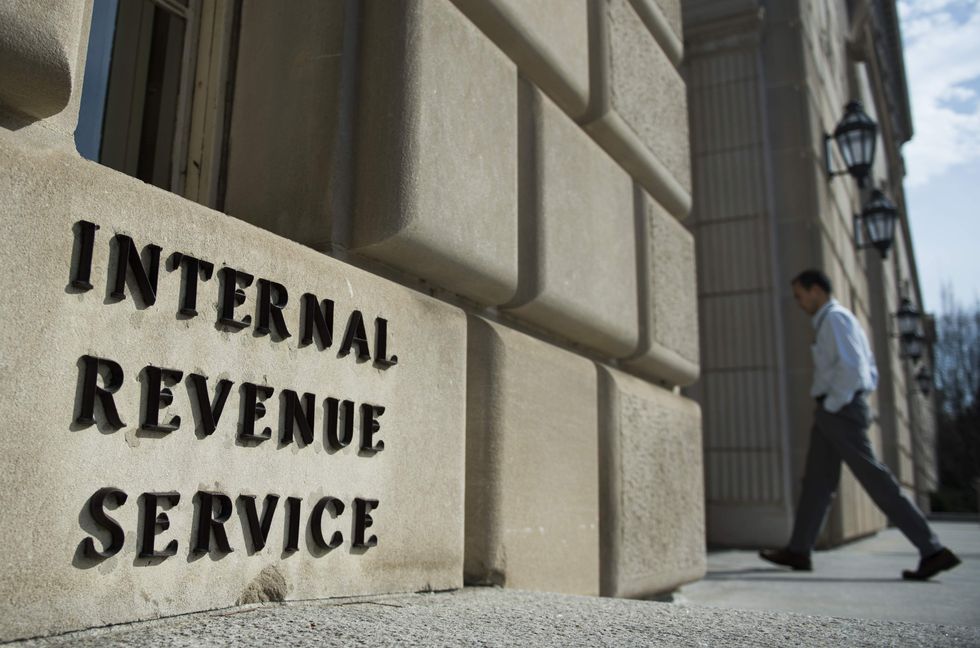
A man walks into the Internal Revenue Service building in Washington, DC on March 10, 2016. / AFP / Andrew Caballero-Reynolds (Photo credit should read ANDREW CABALLERO-REYNOLDS/AFP/Getty Images)

With President Donald Trump issuing executive orders to make the tax law more lenient, a drastic change has occurred that will make the Obamacare mandate not so mandatory.
At the beginning of February, the IRS quietly changed the way you can fill out your 1040 tax form, allowing you to submit one without filling out line 61. This line, for most tax filers, is where you would notify the IRS if you had health coverage during the previous year. As Obamacare was mandatory, leaving that line blank would have caused your 1040 to be rejected.
But now filling out this line is optional, allowing your 1040 form to go through without telling the government anything about your healthcare situation. According to a notice by the IRS, this rule took effect February 3rd.
While this may seem like a small thing, the Obamacare mandate required you to have healthcare, as not doing so resulted in a tax penalty called the "shared responsibility payment." The law survived financially through participation, or tax penalties, but with this exemption of line 61, Obamacare may see itself crippled as it becomes more voluntary than mandatory.
Reason asked the IRS to comment on the recent rule change, and was told that the tax burden that weighs on many who don't have insurance will be now be lifted.
"The recent executive order directed federal agencies to exercise authority and discretion available to them to reduce potential burden," the IRS said in a statement to Reason. "Consistent with that, the IRS has decided to make changes that would continue to allow electronic and paper returns to be accepted for processing in instances where a taxpayer doesn't indicate their coverage status."The tax agency says the change will reduce the health law's strain on taxpayers. "Processing silent returns means that taxpayer returns are not systemically rejected, allowing them to be processed and minimizing burden on taxpayers, including those expecting a refund," the IRS statement said.
While this may weaken the ability of the IRS to enforce the tax, the mandate is still technically a law on the books. However, it's difficult to process a penalty without the information on an individual's coverage, thus allowing Americans to skirt the law without breaking it.
In the end, however, the Trump administration cannot completely eliminate the mandate without first holding it up in court as unconstitutional, and even then it cannot be weakened without the say so of congress.
While insurers have wished that the Obamacare law be strengthened, the Trump administrations weakening of the law may already cause the unstable market to become too turbulent for companies to stay. Just recently it was announced that Humana would be the first major health insurer has decided to pull out of the Affordable Care Act starting next year.